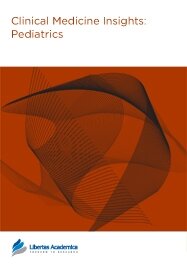

Publication Date: 20 May 2008
Journal: Clinical Medicine Insights: Pediatrics

Public Health Research Group, Criminology Programme, School of Social Science, Liverpool John Moores University, Clarence Street, Liverpool, United Kingdom, L3 5UG.
Abstract
Conflicting opinion regarding the relative weight that should be allocated to the investigation of organic causes of child illness, compared to the pursuit of suspicions of child abuse, has generated considerable public debate. The discourse of Munchausen Syndrome by Proxy/Fabricated and Induced Illness is at the centre of contention. In particular, concern has arisen that children’s medical needs are being neglected when their conditions are misdiagnosed as child abuse. This paper documents a case study in which the use of Child Protection procedures was linked to the belief that the child’s illness had “no organic cause.” The case study is contextualised in a review of literature relevant to the diagnostic process. The deployment of the Child Protection perspective resulted in significant delay in the diagnosis of the child’s brain tumour. The child was ultimately found to be suffering from an optic chasm mass lesion involving the hypothalamus and the medial temporal regions, resulting in Diencephalic Syndrome. The evidence in this case is that erring on the side of suspecting Munchausen Syndrome by Proxy/Fabricated and Induced Illness, was not “erring on the side of the child.” Several lessons need to be learned from the case. The importance of ensuring that the Child Protection perspective does not displace adequate assessment of alternative explanations for the child’s condition is emphasised, as is the need for good communication in medical relationships. Strategies involving empathy, mediation, negotiation and conflict resolution may provide a more appropriate and therapeutic alternative to the use of Child Protection procedures in cases where the diagnosis is contentious. The need to re-write relevant policy, protocols and guidance is imperative.
PDF (397.31 KB PDF FORMAT)
RIS citation (ENDNOTE, REFERENCE MANAGER, PROCITE, REFWORKS)
BibTex citation (BIBDESK, LATEX)
The publishing experience in Libertas Academica journals is unique. Readers can feel satisfied that publications are peer reviewed. Authors follow simple steps to reach final stage of publication. All readers have access to articles. Journal subscriptions or medical library access is not needed.

All authors are surveyed after their articles are published. Authors are asked to rate their experience in a variety of areas, and their responses help us to monitor our performance. Presented here are their responses in some key areas. No 'poor' or 'very poor' responses were received; these are represented in the 'other' category.See Our Results
Copyright © 2013 Libertas Academica Ltd (except open access articles and accompanying metadata and supplementary files.)
FacebookGoogle+Twitter
PinterestTumblrYouTube